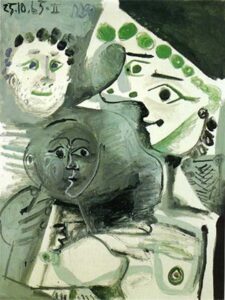Published in
British Gestalt Journal. Copyright 2007 by Gestalt Publications Ltd. 2007, Vol. 16, No. 2, 19±27
Abstract
 This article describes a Gestalt approach to working with adolescents in an NHS child and adolescent mental health clinic. The importance of a dialogic phenomenological relationship is emphasised, as well as an experimental attitude using age-appropriate practical tools. The functional role of anger in helping adolescents disembed from the family ®eld is illustrated with vignettes. A longer case example shows work using creative arts modalities with a school phobic boy disabled by panic.
This article describes a Gestalt approach to working with adolescents in an NHS child and adolescent mental health clinic. The importance of a dialogic phenomenological relationship is emphasised, as well as an experimental attitude using age-appropriate practical tools. The functional role of anger in helping adolescents disembed from the family ®eld is illustrated with vignettes. A longer case example shows work using creative arts modalities with a school phobic boy disabled by panic.
Keywords
CAMHS, creative arts modalities, music, fathering.
“I can’t be bothered to miss you anymore
Month twelve, day thirty-one and hour twenty-four
I used to think if missed hard enough you’d come back for sure
I can’t be bothered now to miss you anymore”
To view this article in full, see British Gestalt Journal, Volume 16, 2 (2007).
A slightly longer version of this features as chapter 12 in Harris, N and Lee, R (eds.) 2011, Relational Child, Relational Brain: Development and Therapy in Childhood and Adolescence, Gestalt Press, Routledge, Taylor and Francis. Read the pre-production version of this chapter (PDF, 344 KB).
Polish translation
The article is also available in Polish on the Biblioteka Gestalt website.
